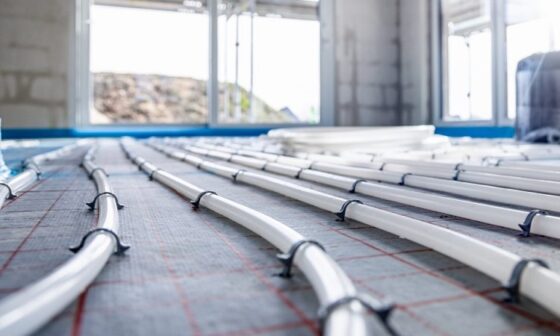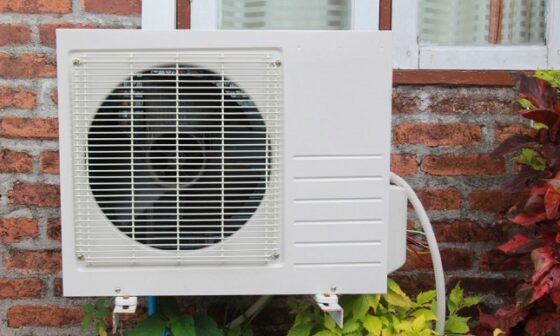If you are considering switching to electric heating, it’s important to know the potential costs involved. In this article, we’ll break down the key factors that determine the cost of running electric radiators and give you an estimate of what you can expect to pay.
Understanding the basics of electric radiators
Electric radiators are a popular choice for heating homes and businesses, especially in areas where gas heating isn’t available or isn’t practical. Unlike gas boilers, electric radiators heat up using electricity and are available in various styles, from wall-mounted panels to freestanding units.
The cost of running electric radiators depends on several factors, including the size of the radiator, the insulation of the room, the temperature you want to achieve, and the price of electricity in your area.
Calculating How Much Electric Radiators Cost to Run
To get a rough estimate of how much it will cost to run an electric radiator, you need to know its power rating, measured in watts. The higher the wattage of the radiator, the more energy it uses, and the more it will cost to run.
For example, a 1000-watt electric radiator running for one hour will use 1 kWh of electricity. If the cost of electricity in your area is 15 pence per kWh, running the radiator for one hour will cost 15 pence.
Here are a few more examples to give you a better idea of the cost of running electric radiators:
-
A 750-watt electric radiator running for 6 hours a day for a month (30 days) will use 135 kWh of electricity. If the cost of electricity in your area is 18 pence per kWh, the monthly cost of running the radiator would be £24.30.
-
A 2000-watt electric radiator running for 8 hours a day for a month (30 days) will use 480 kWh of electricity. If the cost of electricity in your area is 14 pence per kWh, the monthly cost of running the radiator would be £67.20.
-
A 500-watt electric radiator running for 10 hours a day for a month (30 days) will use 150 kWh of electricity. If the cost of electricity in your area is 20 pence per kWh, the monthly cost of running the radiator would be £30.00.
Factors that affect the cost of running electric radiators
- The size of the radiator
The size of the radiator is a significant factor in determining the cost of running an electric radiator. The larger the radiator, the more energy it uses to heat the room, resulting in a higher cost.
- The insulation of the room
The insulation of the room can significantly affect the cost of running electric radiators. Poorly insulated rooms allow heat to escape quickly, requiring the radiator to use more energy to maintain the desired temperature. If your room is poorly insulated, consider investing in insulation to reduce your energy bills.
- The temperature you want to achieve
The temperature you want to achieve also affects the cost of running electric radiators. If you set the temperature too high, the radiator will use more energy to heat the room, resulting in a higher cost. Aim for a comfortable temperature of around 18-21°C to balance warmth and energy efficiency.
- The price of electricity in your area
The price of electricity in your area is another factor that affects the cost of running electric radiators. Electricity prices vary by region, and you can check the cost per kWh on your electricity bill or by contacting your supplier.
tips to help you save on the cost of running electric radiators
-
Use a thermostat: A thermostat can help you regulate the temperature and ensure that your radiator is not using more energy than necessary. Set the temperature to around 18-21°C for optimal comfort and energy efficiency.
-
Insulate your room: A poorly insulated room can cause heat to escape quickly, requiring your radiator to use more energy to maintain the desired temperature. Consider investing in insulation to reduce heat loss and make your heating system more efficient.
-
Use timer settings: Many electric radiators come with timer settings, allowing you to set the radiator to turn on and off at specific times. Use these settings to ensure that your radiator is not running unnecessarily and that it’s only heating the room when you need it.
-
Don’t block the radiator: Keep your radiator clear of any obstructions, such as furniture or curtains, to ensure that heat can circulate freely and efficiently.
-
Use individual room heating: Electric radiators are ideal for heating individual rooms independently, allowing you to save energy and money by only heating the rooms you need.
-
Use energy-efficient electric radiators: Consider investing in energy-efficient electric radiators, which use less energy to heat the room and can save you money in the long run.
By following these tips, you can reduce the cost of running electric radiators and make your heating system more efficient. Remember that small changes can make a big difference, so take the time to optimize your heating system for maximum efficiency and cost savings.
Summary
The cost of running electric radiators depends on various factors, including the size of the radiator, the insulation of the room, the temperature you want to achieve, and the price of electricity in your area.
While electric heating can be more expensive than gas heating, it provides several benefits, including increased efficiency and the ability to heat individual rooms independently. By understanding the factors that affect the cost of running electric radiators, you can make an informed decision on whether they are a cost-effective heating option for your home or business.


